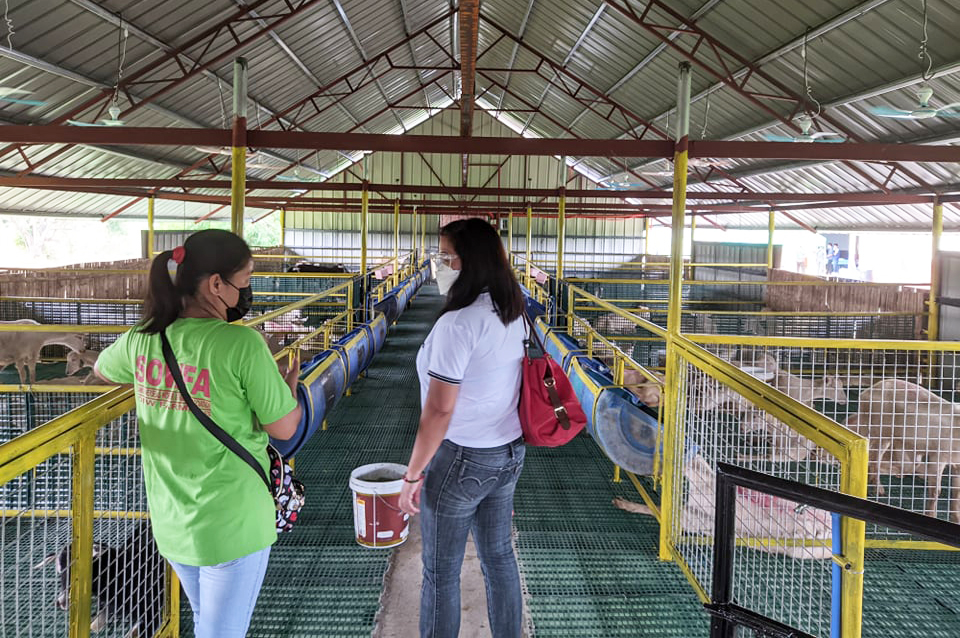
As part of the oversight functions of the Philippine Council for Agriculture and Fisheries (PCAF) on the PL 480-funded projects, the Planning, Monitoring and Knowledge Management Division-Project Development Section (PMKMD-PDS) conducted a monitoring activity on National Dairy Authority’s (NDA) “Intensified Community-Based Dairy Enterprise Development” project on July 1, 2021 in Camiling, Tarlac.
104 imported dairy goats were turned over to Sawat Overseas Workers and Families Association (SOWFA) in a ceremony led by Agriculture Secretary William Dar, together with Undersecretary for Livestock William Medrano and NDA Administrator Marilyn Mabale.
The project is funded under the US PL480 Title 1 program, which aims to promote dairy herd build-up and enhance milk production through infusion of purebred and crossbred dairy stocks, use of advanced breeding technologies, and establish/strengthen dairy enterprises within dairy animal populations.
With a total cost of more than PhP1.5 Billion, the project is a collaboration between the NDA for dairy goat and cattle, and the Philippine Carabao Center for the dairy buffalo. PCAF, through its M&E function, conducts monitoring of the project’s implementation, while the DA-National Livestock Program is the oversight office of the project.
In the validation and monitoring conducted by PMKMD-PDS, SOWFA received 75 Saanen does, 25 Alpine does, three Saanen bucks and one Alpine buck. The imported dairy goats will be housed in a 400 thousand pesos worth of communal housing equipped with water pumps and ceiling fans for ventilation. It is located within the five-hectare lot in Brgy. Sawat in Camiling, which will be leased by the association for five years.
SOWFA, which was established in 2011 and was registered as an association in 2013, are composed of overseas Filipino workers (OFWs), family members of OFWs, and displaced OFWs. The association has already 274 members with an estimated 250 hectares of accumulated land.
According to SOWFA Executive President Engr. Aldrin Cardenas, most of the member-beneficiaries went to a training on how to raise imported dairy goats because most of them were used to raise native goats.
To reduce the feed cost, he also pointed out that the association practices silaging in raising dairy goats. They even planted corn in their yard to be used as silage. According to research, silage can be an economical source of nutrients for goats.
“We have already scheduled 10 member-beneficiaries to take turns in feeding and watching the dairy goat projects. Our main concern now is to increase the number of dairy goats,” added Engr. Cardenas.
PCAF recommends for the continuous monitoring and delivery of technical assistance to SOWFA relative to forage production, animal health management, conduct of additional training, and provision of other farm facilities. | JC (Photos courtesy of PMKMD-PDS)











